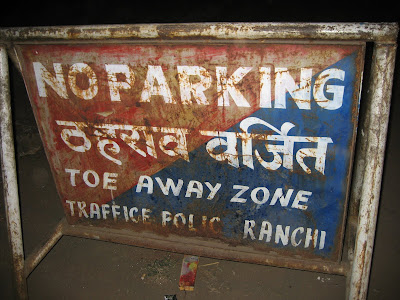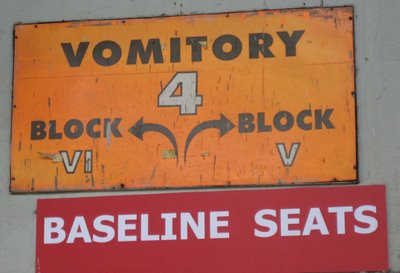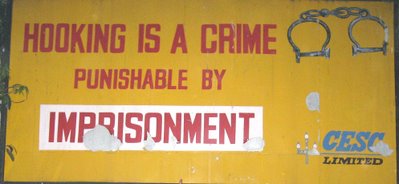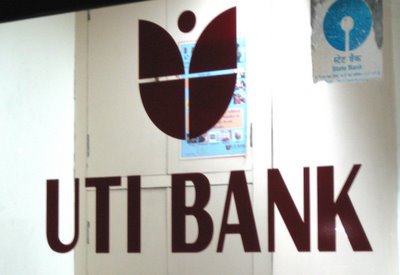Sunday, December 03, 2006
Oxford English
The British were not the first Europeans to arrive in India, nor were they the last to depart; the proud owners of both those distinctions are the Portuguese: 1498 & 1961. The Portuguese did not possess ample resources to leave much of a legacy outside of the coastal area of Goa. The British legacy, however, lives on today via the extensive rail network, the chai culture, the famous Indian bureaucracy, and Hinglish.
In 1600, Queen Elizabeth I of England granted a charter in which she gave the East India Company a full-fledged monopoly on all British trade with India. The London-based company founded their first trading post in Gujarat in 1613. By 1668, they had established additional trading posts in Chennai (Madras), Bengal, and Mumbai (Bombay). Virtually all of Britain’s affairs in India were administered by the East India Company until 1858, when the British government officially took control. Although the government had accepted a more active administrative role beginning in 1784, for nearly 250 years it was not the British Government that ruled over India – it was a commercial trading company.
As the government in London assumed a more permanent and fortified presence in India, it retained the same priorities as the trading company: trade and profit. They planted tea, coffee, and cotton; developed iron and coal mining; and commenced with the construction of the rail system.
The British also installed a system of central government replete with bureaucratic models that existed at the time in London. This system, jettisoned long ago in Britain, still prevails throughout India in incomprehensible proportions.
Additionally, we must not forget to mention the imposition of the queen’s tongue. In order to more efficiently (see: underhandedly) administer a land of countless local languages, the new rulers decided that selecting one official governmental language would be most practical. They chose English.
The Constitution of India currently recognizes eighteen languages. There are, amazingly enough, believed to be over 1600 other languages spoken throughout the country. Hindi is the most widely used, though English remains the official language of the judiciary. There are significant efforts being made to promote Hindi as the country’s official language, but the majority of south India rightfully objects; Hindi is the primary tongue of the north.
Just as American English has followed a course distinct from that of British English, Indian English (Hinglish) has developed its own idiosyncrasies as well.
I recall being surprised the first few times I watched CNN’s affiliate in India, CNN/IBN, by the awkward manner in which the anchors conversed in English. I was further confounded by the number of spelling errors in the ticker that graced the bottom of the page. When I mentioned this to a few of my Indian colleagues, they assured me that it was because I spoke American English.
Almost in unison they continued: “This is Oxford English.”
I leaned toward the imaginary Oxford man at my side and mumbled out of the corner of my mouth: “That’s just bad English.”
There was no response. He had fainted two phrases back.
Without further ado, I give you Hinglish, umm… I mean Oxford English. Some of it may be amusing. Other phrases may be totally confusing. Don't be alarmed. After four months here, I don’t understand some things that I see and hear.
A bit draconian no doubt, but the traffice polic is a force to be reckoned with.
Although the lift is now completely functional, I continue to opt for the stairs.
While same-sex sex is illegal in India, same-sex marketing is a real hit.
A section of a cricket stadium in Kolkata. I chose to sit elsewhere.
So much for supplementing my income (on that street).
If you’re not personally familiar with UTIs, then you’re lucky (or perhaps just a guy). I wonder if this bank actually has many withdrawals. 
Urinating in public is totally acceptable in India. Alas, the irony is lost.
Amen!
Considering I wasn’t in the market for any of that, I kept on walking.
That’s what I’m saying, brother! Wait… What?!
There are so many more wonderful examples. More to come, I promise.
.jpg)
.jpg)


No comments yet